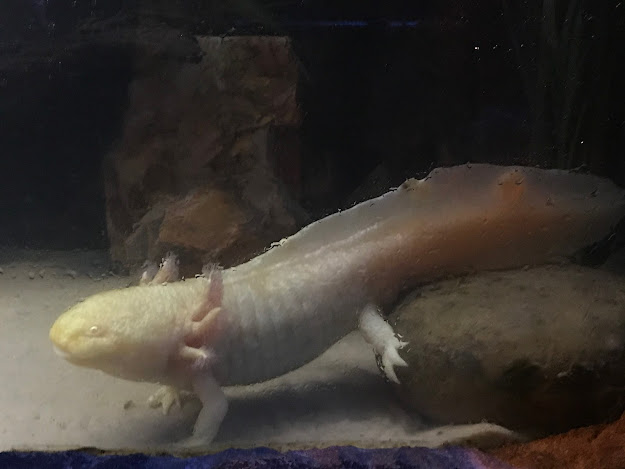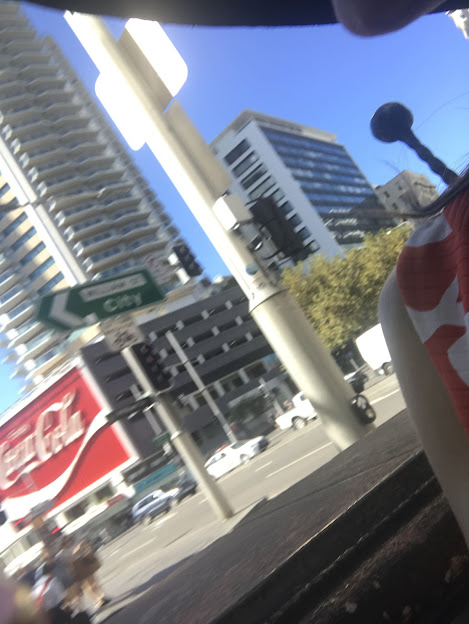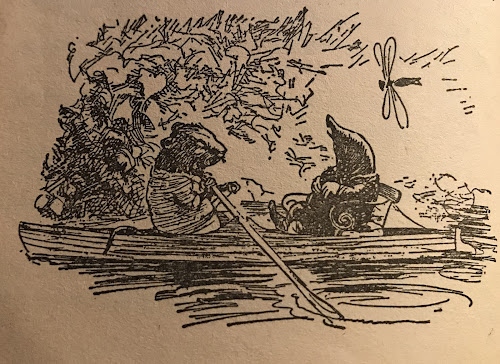Running Away With Petr Král
Petr Král, In Search of the Essence of Place, 2012
Books don't tend to come in for a traditional review about these pages, in spite of the promise to furnish the virtual handbag with Something to Read, and indeed their infrequency would suggest I've forgotten my creed. Not true, Dear Reader! It's just a matter of time before some words and pictures will come your way to indicate I've been been busy in that department and today's the day for picking over the tailings of a book I read some goodly while ago.
 |
| "Isn't the viaduct just a bridge that should have been a Hôtel Continental, while the essence of the bowling alley lies, not within itself, but in the first gas tank he saw?" |
In spite of my rather catholic taste in reading, any work by the Czech Surrealist poet Petr Král is not what I would traditionally reach for, but I've been mulling over this book for ages, and as I've discovered that he died only a couple of weeks ago, and there is an utter dearth of material about him on the interwebs, I have to set down some basic detail. (Nota bene: This assemblage of words and pictures are mostly random and incongruous, in small tribute to him. Proceed with caution.)
For that is what I can only provide. This book is classified by me as a Hard Read. Every dozen pages or so, there is a glimmer of understanding to be had from his writing. The language is simple, yet the meaning is elusive and opaque, and mostly reads like gibberish. Unlike the similar density of, say, Patrick Leigh Fermor, where each page requires a dictionary consultation, this book should be an easy read, but when it's the work of a poet, and a Surrealist at that, it becomes rather a labour.
And yet I persist, as not only did I buy this for an apparently forgotten reason, from an independent publisher I admire, but from time to time some shape emerges in the corner of my mind and I nearly feel like I know what's going on and what he's trying to say. But mostly I'm thinking, what in the heck is going on here? Conclusion: you'll be getting none from me.
What do I know? Our protagonist, "the explorer", walks the streets of Prague and Pilsen and Paris, and brushes up with America, although I never quite figure out if he is supposed to have gone there. He's a flâneur, looking to find the potential in places, the untapped energy. He walks mostly alone but later with an accomplice who is searching for coincidences.
Dreams and a "kingdom of thistles"; characterless buildings and cheerless rooms; dusty shopfronts and a tailor's dummy feature quite large. It's far from glamorous, despite the locations. If the book was a film, I read, it would've been directed by Wim Wenders. This is all I know. The rest just confounded me.
But a memory of a sort of recurring dream I had as a child magics into my conscience half-way through the book. A waking dream, to set off to sleep to, where Teddy, (whom you've met before around these pages) and I would set out at night from our reed-hidden and rustic little cabin on an island in the middle of the Lake in Our Nation's Capital in a little rowboat, à la Ratty & Mole on the River, and with a magic brick in our possession which conferred both the necessary invisibility and the ability to, ahem, procure supplies from the shoppes. (Without going into the detail of this dream of wanton vandalism, which doesn't sit comfortably with me at this long remove, I do need to reassure the Reader that I was not a delinquent!) It is evident, though, that not wanting to leave the shelter of my beloved family but subconsciously understanding that Adventures only ever happen in children's books when the protagonists are orphaned, this little dream of escape could be the chicken's way of running away from home with trusty Teddy but being safely back in my own bed, come morning. Petr Král may yet still have approved..
"And you really live by the river? What a jolly life!"
Mole dreams long waking dreams.
Petr Král, Prague, 1941-2020
Image credits: 1, 2, 5, 6, 8, 9: Flying With Hands; 3, 4: Toitū Otago Settlers Museum; 7: Sotheby's
Quotations: 1-5: "In Search of the Essence of Place'; 6: "The Wind in the Willows"
[First Published on Flying With Hands, July 2020]







